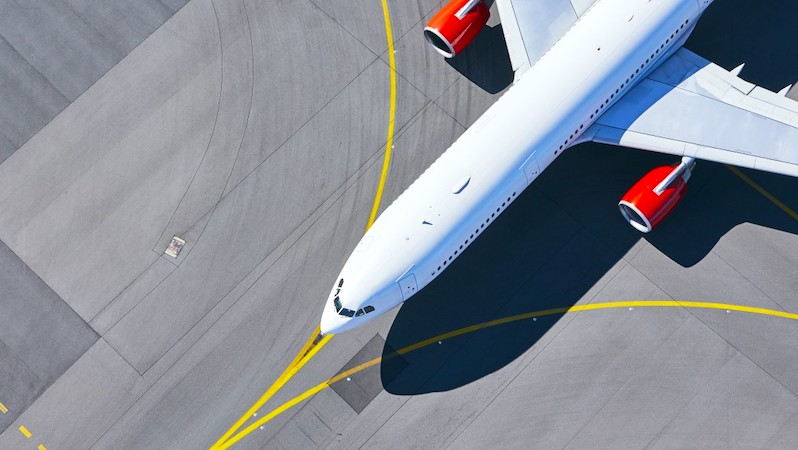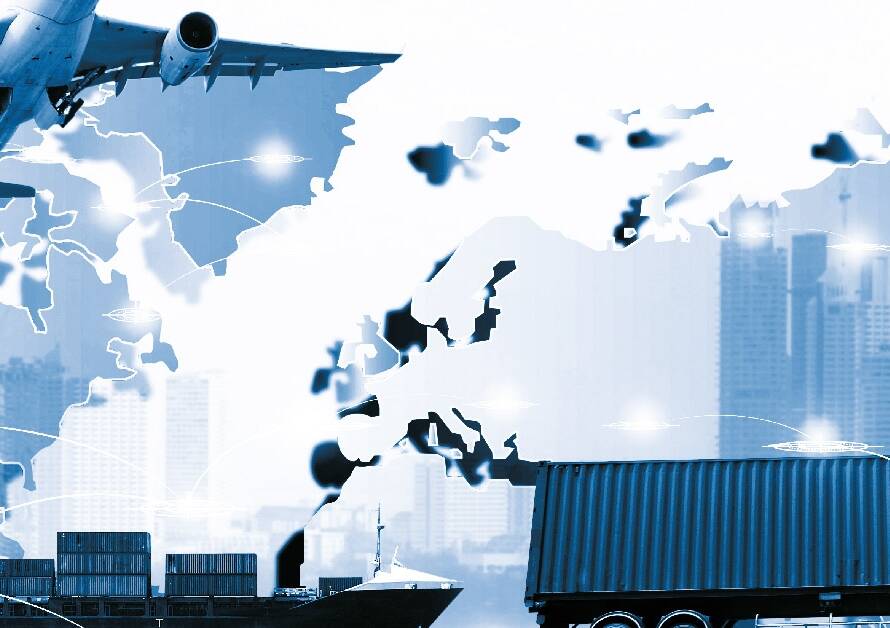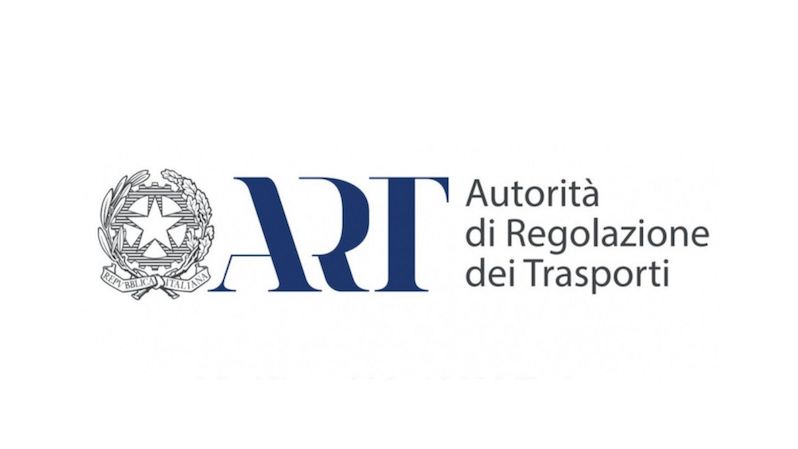The fair competition in the EU air transport market in light of the support measures to face the COVID-19 outbreak

The COVID-19 outbreak has had, and is still having, a strong impact on the transport system worldwide, leading to an overall reduced mobility. According to Eurocontrol’s latest data, during the first ten days of February, air traffic has decreased by 66% compared to the same 2019 period1 and it is likely to decrease even more, since new travel restrictions have recently been imposed by Member States on non-essential travels due to the latest waves of infection2. The situation remains critical outside Europe’s borders too, where US flights, both domestic and international, are recording an air traffic decrease of 45% compared to the same 2019 period.
Moreover, the International Air Transport Association (IATA) added a “COVID-19 variant” scenario in its most recent outlook for 20213, estimating that the Revenue Passenger Kilometers (RPK) for 2021 might only reach the 38% of the RPK achieved in 2019. This situation is part of the general decline foreseen by IATA in its previous financial outlook, which confirmed that the deep losses in the air transport sector recorded in 2020 will continue this year. In particular, a global net loss of $38.7 billion is expected in 2021 (more than the $15.8 billion loss previously forecasted)4.
The measures adopted in order to support airlines after the COVID-19 outbreak
The abovementioned data undoubtedly show a difficult situation, that the different Governments are trying to mitigate by means of the adoption of several governmental and non-governmental measures in order to support airlines affected by the COVID-19 outbreak, with the aim to safeguard and restore the connectivity and to secure, anyway, the free movement of people and goods. This, while always keeping in mind that the maintenance of a competitive market is the best asset to strongly bounce back afterwards.
Several governments operating in the largest aviation markets (i.e. US, Europe and Asia) have decided to assist their national carriers with different measures. Specifically, as of the end of 2020, the relief measures for airlines were equal to a total amount of nearly $173 billion5. These measures consisted in different types of support like government loans and guarantees (including non-repayable loans), recapitalization measures through State equity, nationalization measures, flight subsidies (i.e. PSOs), deferral and/or waiver of taxes and charges, grants, private equity measures and debt restructuring.
The granting of government support measures raises the issue of assessing the compatibility of these kind of measures with the fundamental principles of the single EU market. In this respect, in its Communication dated 19th March 20206 the EU Commission has affirmed that the aids provided to support the economy in the COVID-19 context were compatible with the single EU market. In addition, it is worth highlighting that the EU Commission’s Executive Vice-President, Ms. Margrethe Vestager, has clarified that “compensation can be granted to airlines under Article 107(2)(b) TFEU for damages suffered due to the COVID-19 outbreak, even if they have received rescue aid in the last ten years”7.
Moreover, on 28th January 2021, the EU Commission has extended the effectiveness of the Temporary Framework (TF) for State aid measures until 31st December 2021 and has also made some amendments to it: in particular, the maximum amount of the support measures which can be granted under the TF8 has been doubled. In addition, Member States can also ask to convert repayable instruments into other forms of aid, such as direct grants.
With specific regard to the transport sector, the EU Commission has stated that Member States can provide support measures on the basis of Article 107(2)(b) TFEU in order to compensate for the damages directly caused by the COVID-19 outbreak, such as damages directly caused by restrictive measures which preclude the beneficiary, de jure or de facto, from conducting its economic activity – or a specific and significant part of its economic activity – in certain areas (e.g. the damage caused by restrictions of flights or other transport to or from certain points of origin or destination)9.
Besides the issues concerning the compatibility of these measures with the single EU market, it turns out to be interesting to show the different approaches adopted by the different States’ governments in taking these measures.
In this regard, it should be noted that the two Countries that have granted the most significant financial support to their airlines (for an amount that exceeds the 50% of the total financial measures issued) are the US (where the 4 biggest airlines – Delta, America, United and South West – have a strong presence both in domestic and international markets) and Germany. In general, the trend has showed that the richest Countries and the Countries with the largest number of ‘domestic’ airlines are the ones who have provided the largest support to their companies.
Moreover, Countries relying the most on international flights have decided to provide more financial support to their airlines. This is due to the fact that airlines are, on the one hand, a strategic productive industry in these Countries10 and, on the other hand, because there is a lack of domestic air transport market. On the contrary, Countries with both international and domestic strong market (e.g. the Russian Federation and Japan) are less keen to support airlines and they strongly rely on their large domestic markets until the full reopening of international borders11.
It is worth highlighting that governments’ support measures will deeply affect the maintenance of the connectivity in the post-pandemic air transport sector. Indeed, there is the concrete risk that Countries that have not received enough support will lose part of their connections and the market share of the main ‘flag/traditional’ carriers may become higher because of the exit of smaller players from the market. In addition, the network and scale economies may continue being favorable to large network operators in domestic and international markets and, in the near future, point-to-point traffic with smaller aircrafts may be envisaged.
Since in the EU market ‘traditional’ airlines (i.e. Air Brussels, SAS, Air France-KLM, Lufthansa, Alitalia S.p.A., Italia Trasporto Aereo S.p.A., Finnair, TAP, EasyJet etc.) are companies which historically benefit the most from loans, grants, recapitalization, nationalization and PSOs12, it is possible to assume that major operators in the single market will survive the post-pandemic crisis and that they will recover a large part of their activity through financial support, flight subsidies, aids in form of wage subsidies for employees to avoid lay-offs during the COVID-19 outbreak and recapitalization measures, including nationalization.
Considering that in the last decades governments have exercised a significant influence on air transport industry through, among others, the allocation of traffic rights, the airline designation in ASAs with specific Countries, PSOs, airports’ concessions, the management of air traffic services etc., some concerns have been raised due to the possible implications that these measures may have on competition and free access to EU market.
In particular, governments’ financial measures have given rise to concerns around the implication of governments’ influence on airline management and on the reinforcement of the most powerful Member States’ airlines. This influence may expose to major risks and compromise the activities of smaller operators, together with the operativity of flights on less-profitable routes (also non-peripheral ones) and the level of competition and efficiency in the market. Indeed, recapitalization/nationalization measures could lead to durable and maybe irreversible competitive advantages, compromising the positive effects of a liberalized market and of the presence of low-cost carriers in terms of fares and supply for air services.
To avoid any possible competition distortion, the governments’ interventions must be subject to clear conditions relating to the State’s entry, remuneration and exit from the equity of the undertakings concerned and to specific governance provisions as well as to other appropriate measures.
The measures adopted in order to support airports
In association with the impact of the COVID-19 outbreak on airlines’ activities, it has to be considered the impact that the pandemic has had on airports. Indeed, many airports have been closed in order to contain the spread of the virus and the sudden drop in air traffic has led to an almost complete decrease of both aeronautical and non-aeronautical services’ revenues for airports. This has undermined the essential role played by airports in the economic development of cities, countries and regions and in the provision of services to airlines, moving passengers and cargo.
In numerical terms, the Airports Council International (ACI) has estimated, for the year 2020, a drop of nearly -69% in airport passengers and a -64.2% loss in airport revenues13. In particular, a decrease has been registered both in revenues from airlines for aeronautical activities (such as landing charges for aircraft and security charges) and also in revenues from airports’ non-aeronautical activities (such as parking facilities, restaurants or duty-free)14.
Given the severity of the situation, different support measures have been adopted in order to guarantee airport’s survival. In EU, the Commission’s response to the crisis has consisted in both the establishment of a Temporary Framework (TF) for State aids on the basis of Article 107 (3) (b) TFEU and in the forecast of a potential compensation under Article 107 (2) (b) TFEU applied to all undertakings affected by COVID-19.
Consequently, airports that were required to stay open during the lockdown period have operated under public remit and, therefore, they can be potentially compensated for the relevant incurred costs by the concerned Member States. In particular, it has been established that “where an airport is required to stay open to accommodate certain flights during the COVID-19 outbreak, if the Member State compensates the airport operator for the variable costs related to those public remit activities (i.e. difference between costs that would be borne in case the airport was closed down and the costs borne in the situation where the airport remains open to accommodate the requests by the Member State), this would a priori not fall under State aid rules”15.
Despite the EU’s intent to guarantee State aids to airports, PSOs and public remit were not capable to fully compensate airports’ losses and needs, and States’ support to airports was very limited compared to other sectors or airlines (approximately just €2.2 billion16). Moreover, it should be noted that there have been major differences among Member States in supporting their airports, thus creating the risk of establishing a huge competitive gap among the EU Member States and the different based companies.
A recent governmental support measure in support of airports (and ground handling services suppliers) that it is worth recalling is the one provided for in the latest Italian Budget Law, which has been amended in order to establish a €500 million fund17.
In conclusion and in light of the data and considerations above, it is undoubtful that EU Member States are striving to ensure the survival of the different stakeholders of the aviation sector by trying to find a balance between the adoption of supporting measures and relaxed rules, which will continue to apply as long as the aviation sector suffers the effects of the crisis.
1 See Eurocontrol, Comprehensive Air Traffic Assessment – Covid-19 impact on European air traffic, 11 February 2021, https://www.eurocontrol.int/sites/default/files/2021-02/covid19-eurocontrol-comprehensive-air-traffic-assessment-11022021.pdf.
2 See Eurocontrol, Comprehensive Air Traffic Assessment – Covid-19 impact on European air traffic, 4 February 2021, https://www.eurocontrol.int/sites/default/files/2021-02/covid19-eurocontrol-comprehensive-air-traffic-assessment-04022021.pdf.
3 See IATA, Covid-19, weak year-end for air travel and outlook is deteriorating, 3 February 2021, https://www.iata.org/en/iata-repository/publications/economic-reports/weak-year-end-for-air-travel-and-deteriorating-outlook/.
4 See IATA Press Release No 95/2020, 24 November 2020, Deep Losses Continue Into 2021, https://www.iata.org/en/pressroom/pr/2020-11-24-01/.
5 Ibid. Moreover, from the 1st December 2020 until the 15th February 2021, the EU Commission has approved: €11.7 million for compensation in favour of Croatia Airlines, €106.7 million in restructuring aid and €30.2 for compensation in favour of the French airline Corsair, €120 million for the compensation in favour of the Greek company Aegean Airlines, the €130 million scheme for the compensation of Italian airlines and €73 million for compensation in favour of Alitalia. See European Commission, Coronavirus Outbreak – List of Member State Measures approved under Articles 107(2)b, 107(3)b and 107(3)c TFEU and under the State Aid Temporary Framework, 15 February 2021,
6 Communication from the Commission C(2020) 1863, Temporary Framework for State aid measures to support the economy in the current COVID-19 outbreak, 19 March 2020.
7 See Statement by Executive Vice-President Margrethe Vestager on a draft proposal for a State aid Temporary Framework to support the economy in the context of the COVID-19 outbreak, 17 March 2020, https://ec.europa.eu/commission/presscorner/detail/en/STATEMENT_20_479.
8 The aids may be provided for the amount of €225,000 to the companies active in the agricultural sectors, for the amount of €270,000 to the companies which operate in the fishery and aquaculture sector and for the amount of €1.8 million to the companies active in all other sectors, including the transport sector.
9 See point 15bis of Communication from the Commission C(2021) 564, Fifth Amendment to the Temporary Framework for State aid measures to support the economy in the current COVID-19 outbreak and amendment to the Annex to the Communication from the Commission to the Member States on the application of Articles 107 and 108 of the Treaty on the Functioning of the European Union to short-term export-credit insurance, 28 January 2021.
10 Among others Belgium, Singapore and Hong Kong.
11 See M. Abate – P. Christidis – A.J. Purwanto, Government support to airlines in the aftermath of the CODIV-19 pandemic, in Journal of Air Transport Management, 89/2020, 101931.
12 PSOs are in principle available to all airlines but are not included in the low-cost carriers’ business model.
13 In particular, ACI Europe has estimated that, with just 728 million passengers in 2020 compared to 2.4 billion passengers in the previous year, Europe’s airports are back to their traffic levels of 1995. See ACI Europe, Europe’s airport 2020 passenger traffic back to 1995 levels, 12 February 2021, https://www.aci-europe.org/media-room/303-europe-s-airport-2020-passenger-traffic-back-to-1995-levels.html. Moreover, ACI North America (ACI-NA) forecasts that US airports are expected to lose at least $17 billion between April 2021 and March 2022. See https://centreforaviation.com/news/aci-na-welcomes-inclusion-of-usd8bn-airport-support-in-covid-19-relief-proposal-1051888.
14 See International Finance Group, The Impact of COVID-19 on Airports: An Analysis, https://www.ifc.org/wps/wcm/connect/26d83b55-4f7d-47b1-bcf3-01eb996df35a/IFC-Covid19-Airport-FINAL_web3.pdf?MOD=AJPERES&CVID=n8lgpkG.
15 EU Commission, Overview of the State aid rules and public service obligations rules applicable to the air transport sector during the COVID-19 outbreak, 19 May 2020.
16 See ACI Europe, Europe’s airport 2020 passenger traffic back to 1995 levels, 12 February 2021, https://www.aci-europe.org/media-room/303-europe-s-airport-2020-passenger-traffic-back-to-1995-levels.html.
17 Specifically, this fund is intended for compensating damages suffered by airport operators within the limit of €450 million and those suffered by airport ground handling services suppliers within the limit of €50 million (Article 128 bis, Italian Budget Law 2021, Act 2790-bis, amendment approved on 22nd December 2020).





